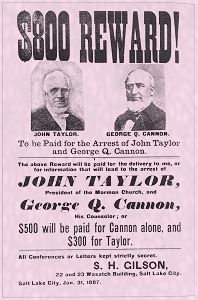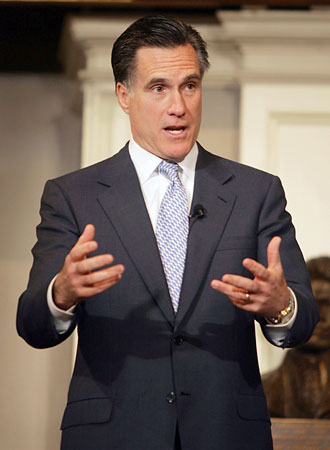In defense of praying for humility
So there's a proverb in the church, sometimes tongue-in-cheek, sometimes not, that says that you should not pray for humility because then you might get it. I remember missionaries in the MTC and in the mission field who would repeat this without any sense of irony at all as though they actually believed it. Yesterday it was repeated over the pulpit.
I have a problem with that.
It reminds me of Augustine's prayer (Give me chastity, but not yet!). It's a rather selfish attitude, really. It's an attitude of fear, fear of being humbled. But what if what you really need is humility? Then you shouldn't pray for it because being humbled might be hard? Doesn't all repentance have the same potential to be hard? If I pray for charity, what's to say that I won't have to go through something difficult to learn charity? Why is a plea for humility any more susceptible to hard answers than a plea for any other trait of a Christian life? What if pride is the reason I have a hard time learning charity? Should I then not pray for charity because I might have to be humbled to get it?
And it takes a odd view about what it means to be humbled. It assumes that being compelled to be humble is something that will only happen to you if you pray for it. That ignores reality. Most people in the world live lives that make our North American lifestyle look like the height of luxury. Alma said this:
it is because that ye are cast out, that ye are despised of your brethren because of your exceeding poverty, that ye are brought to a lowliness of heart; for ye are necessarily brought to be humble. And now, because ye are compelled to be humble blessed are ye; for a man sometimes, if he is compelled to be humble, seeketh repentance; and now surely, whosoever repenteth shall find mercy; and he that findeth mercy and endureth to the end the same shall be saved. (Alma 32:12-13)
I find it interesting that Alma uses the word necessarily, like it was some incontrovertible decree. Is it likely that the people Alma was talking to had asked to be humbled? Some of them, maybe, but not all. (See verse 25). It happened to them anyway. Do we really think that the majority of the world's population that lives in "exceeding poverty" got where they are because they made the dumb mistake of praying for humility? How arrogant is it to think that not asking for humility is going to stop anyone from being "necessarily brought to be humble"?
Compulsion to humility is not a bad thing. Why do we talk about it like it is? Alma calls it a blessing. Why in the world would be ever tell anyone not to seek repentance? But isn't that essentially what we do when we repeat the maxim: don't pray for humility?
But telling someone not to pray for humility goes beyond just being afraid of being compelled to be humble. It actually increases the need to be compelled to be humble. Alma also said this:
And now, as I said unto you, that because ye were compelled to be humble ye were blessed, do ye not suppose that they are more blessed who truly humble themselves because of the word? Yea, he that truly humbleth himself, and repenteth of his sins, and endureth to the end, the same shall be blessed—yea, much more blessed than they who are compelled to be humble because of their exceeding poverty. Therefore, blessed are they who humble themselves without being compelled to be humble. (Alma 32:14-15)
What does it mean to humble oneself? If it is done sincerely, isn't a prayer for humility an act of humbling oneself? If so, then doesn't refusing to pray for humility actually make me more likely to have to be compelled to be humble? Not only is it selfish, it is ultimately self-defeating. It brings on the very consequences it sulkily seeks to avoid.
And given the interrelation between humility and charity, teaching that we should not pray for humility runs the risk of directly naysaying one of the most sublime injunctions of the Christian life:
pray unto the Father with all the energy of heart, that ye may be filled with this love, which he hath bestowed upon all who are true followers of his Son, Jesus Christ; that ye may become the sons of God; that when he shall appear we shall be like him, for we shall see him as he is; that we may have this hope; that we may be purified even as he is pure. (Moroni 7:48)
Those of use who claim to understand and believe the Book of Mormon should be the last people to breathe a discouraging word about praying for humility.
 Oddly enough, my opinion is that the best Joseph Smith on the screen was Vincent Price in the 1940 picture
Oddly enough, my opinion is that the best Joseph Smith on the screen was Vincent Price in the 1940 picture 



























